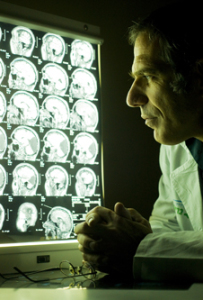
The Decade of the Brain
April 19, 2013
In the United States alone, one in four families contends with the devastating impact of Alzheimer’s, Parkinson’s, schizophrenia, depression, epilepsy, stroke or any number of brain disorders or conditions.
“The chances that each of us will suffer from a brain disease when we get old is actually 100 percent,” says Prof. Alon Friedman, chair of BGU’s Zlotowski Center for Neuroscience and head of BGU’s Laboratory for Experimental Neurosurgery, a collaboration with Soroka University Medical Center.
That’s why the U.S. and Europe are significantly investing in brain research.
President Obama introduced a broad new brain research initiative, starting with $100 million in 2014, to invent and refine new technologies to understand the human brain. The European Union has also put forth $1.04 billion to fund its own human brain project.
At a gathering in San Francisco, Prof. Friedman, a neurophysiologist and neurosurgeon, described some of the most promising brain research pursuits under way at BGU.
With the upsurge in research efforts and interest, he predicts that 2013 will kick off “the decade of the brain.”
BGU’s Brain Imaging Research Center has been in the news in the past few months because of the brain testing recently conducted using its MRI on former Israeli Prime Minister Ariel Sharon. These tests showed that Sharon still has signficant brain activity, despite presumably being in a vegetative state since his 2006 stroke.
Prof. Friedman is now looking to apply his research on the blood-brain barrier to conduct a study on National Football League (NFL) players.
The blood-brain barrier is the protective membrane unique to the brain that surrounds all its blood vessels. Prof. Friedman’s research shows that those with a delicate blood-brain barrier may be more at risk of developing brain diseases, such as epilepsy and Alzheimer’s, as a result of a traumatic brain injury.
NFL players who sustained traumatic brain injuries often go on to suffer from depression or seizures, or develop Alzheimer’s or Parkinson’s at an abnormally young age.




